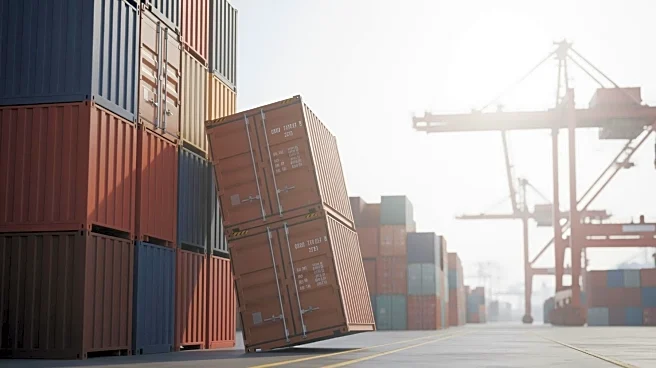What's Happening?
Maersk, a leading container shipping company, has reported better-than-expected third-quarter results but faces investor concerns due to declining freight rates. Despite a 7% increase in volumes and strong performance in terminal operations, Maersk's
financial performance is impacted by freight rates that have fallen by 31% compared to the previous year. The company has managed to offset some of these declines through cost savings and reduced fuel costs. However, the rates have dropped below Maersk's breakeven level, putting pressure on its financial performance. The company has raised its forecast for container market volume growth to 4% for the year, but concerns remain about the impact of new ship deliveries and rerouting away from the Red Sea.
Why It's Important?
The decline in freight rates poses significant challenges for Maersk and the broader container shipping industry. As a bellwether for the segment, Maersk's performance is closely watched by investors and industry stakeholders. The pressure on freight rates could lead to reduced profitability and increased financial strain for shipping companies. Additionally, the uncertainty surrounding new ship deliveries and changes in trade routes may further impact the industry's stability. Maersk's ability to adapt to these challenges and maintain supply chain stability is crucial for its long-term success and the health of global trade.
What's Next?
Maersk is expected to continue navigating the challenges posed by declining freight rates and industry uncertainties. The company may need to implement further cost-saving measures and explore strategic partnerships to enhance its operational efficiency. Investors will be closely monitoring Maersk's performance and its ability to maintain profitability amid these challenges. The broader shipping industry may also need to adapt to changing trade patterns and increased competition, potentially leading to consolidation or strategic shifts in operations.















